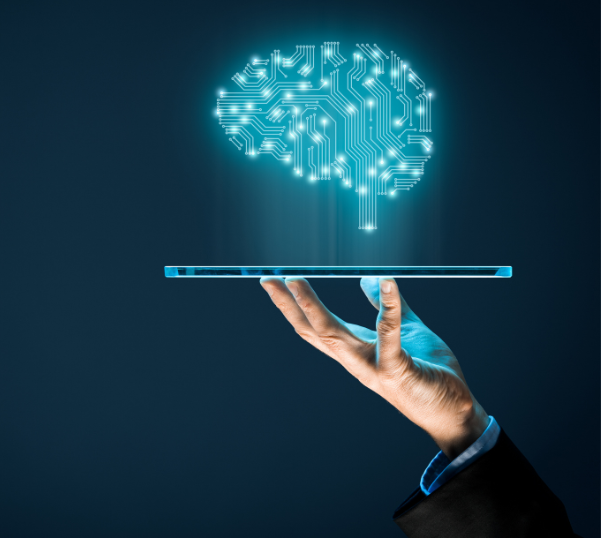
Healthcare Professionals Fearful of Being Replaced By AI
Artificial intelligence is constantly mentioned as the next step in advancing the healthcare industry. Therefore, it’s not surprising that 44% of healthcare professionals are afraid of being replaced by AI [1]. This is due to the automation that artificial intelligence provides, and its ability to make predictions based on large amounts of data. Regardless of the potential of AI, some physicians are afraid of being able to trust the technology [2]. This is because not much information is available on how artificial intelligence can be used. Physicians may also lack information on how AI works, making it even harder for them to trust it. Doctors may also be afraid of patients being misdiagnosed, which can cause adverse health effects to patients. Regardless, artificial intelligence has much potential, and many physicians are excited to see the advancements in healthcare that it can bring.

Reasons why Healthcare Professionals Will Not be Replaced by AI
Although some physicians may be afraid of being replaced by AI, the truth is that humans will always be needed [3]. A study showed that physicians have a .42% chance of being replaced by AI [3]. The reason for this is that AI can not substitute the empathy, compassion, and trust that doctors provide their patients [3]. Furthermore, people are fine with using artificial intelligence to handle administrative tasks such as booking appointments. However, they still prefer doctors when it comes to major health decisions, and often look to them for support [3]. Another reason why doctors won’t be replaced by AI anytime soon is that sometimes doctors require creative solutions to figure out why a patient is facing certain symptoms [3]. Therefore, although AI can look at past data to make connections, only humans can problem-solve and look at a case with the human eye.

Americans Are Afraid of the Use of AI in Healthcare
Americans face similar fears when it comes to the use of artificial intelligence in the healthcare industry. For instance, 60% of Americans in a study felt uncomfortable with a doctor using AI [4]. Part of this is a fear of the unknown. Moreover, 75% of Americans are afraid of AI being implemented before it is ready, especially when all of the risks are still not well understood [4]. Another concern is the impact on their relationship with their doctor. For instance, 57% of Americans surveyed reported feeling like AI to assist in diagnosing would hurt their relationship with their doctor [4]. Surprisingly though, 40% of Americans surveyed felt that AI would decrease the number of medical mistakes made by their doctors [4]. Therefore, it seems that patients are aware of the potential benefits of implementing artificial intelligence. They are just afraid of the technology being implemented before it’s ready.
Discussing the Good and the Bad of AI
As stated earlier, some patients and providers are afraid of the use of AI in the healthcare industry. These fears stem from the lack of information on the technology, potential data breaches [5], and possible misdiagnosis. Regardless, artificial intelligence continues to be mentioned due to its potential of assisting doctors with treatment. It’s important to note that artificial intelligence will likely be used to aid doctors in finding effective treatment plans for patients. This is because it can analyze large amounts of data, look through medical images for patterns, and can even pick up on minor changes in a patient’s medical record [5]. AI can also be used to relieve doctors of administrative tasks, which can lead to more patient-provider time. Overall, AI will allow patients to have positive health outcomes at reduced healthcare-related costs [5]. Therefore, patients and providers should not worry about artificial intelligence taking over the healthcare industry.

HITS
HITS provides management services and collaborates with clinicians in the development of health informatics tools that promote safe, timely, patient-centered, and equitable patient care. Our agency culture and mission facilitate customer/human-centered design. We tailor software and project management support products to meet our customer’s needs. HITS also focuses on transforming health care by analyzing integrated medical solutions and evaluating information systems that enhance individual and population health outcomes, improve patient care, and strengthen the clinician-patient relationship. HITS empowers individual, family, and caregiver health management and engagement by supporting the development of policies and solutions to facilitate individuals’ ability to securely access, manage, control, and authorize the disclosure of specific electronic health information and incorporate this information into their health IT tools. Finally, HITS expands the ability for individuals to safely and securely contribute relevant and usable electronic health information and define preferences and values to their clinicians.
References
- https://www.healthleadersmedia.com/technology/ai-feared-job-snatcher-nearly-half-healthcare-workers
- https://www.texmed.org/Template.aspx?id=51640
- https://www.hunimed.eu/news/5-motivi-per-cui-lintelligenza-artificiale-non-potra-sostituire-la-figura-del-medico/
- https://www.ksl.com/article/50602488/the-robot-will-see-you-now-why-experts-say-ai-in-health-care-is-not-to-fear
- https://www.medicaleconomics.com/view/ai-in-health-care-the-risks-and-benefits